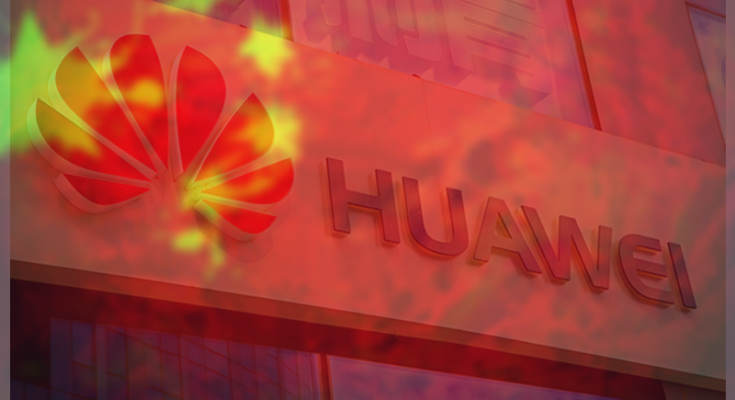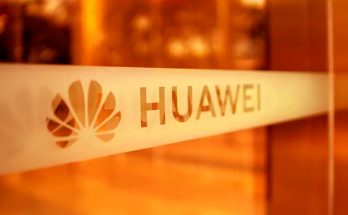In Shenzhen, in the south of China, the world of tomorrow is already preparing. Artificial intelligence is used to organize public infrastructure, the majority of public transport is electric and construction of the fifth generation 5G mobile network is in full swing.
Just 40 years ago, Shenzhen was still a small fishing village. Today, it is a metropolis of several million inhabitants and the headquarters of the Chinese telecommunications company Huawei, to which it owes its brilliant growth. In fact, no other company in the world is able to build 5G networks faster.
And that’s exactly why Huawei has been in the headlines for months: the United States, and to a lesser extent also the European countries, accuse the Chinese company of wanting to spy on them through” Backdoors” – back doors embedded in networks – or even” Kill switch” – a feature, which would disable these networks. For now, there is no element indicting the Chinese giant.
Huawei’s development shows the determination of its leaders. The Chinese company, founded in 1987 by Ren Zhengfei with a starting capital of a few thousand euros, has become one of the world’s largest telecommunications providers. It sells communication technologies to telecommunications operators such as Deutsche Telekom. Since then, the group has also started retailing. Successfully: Huawei dominates the smartphone market. After Samsung, the company is the world’s second largest manufacturer of smartphones, ahead of Apple. And the goal is clear:” We want to be the market leader.”
The pace of development of the company is dazzling, the growth figures are enormous: last year, the turnover of the firm has increased by 19.5% to reach the equivalent of about 95 billion euros. The increase in sales is mainly due to retail trade, which increased by 45.1% over the previous year. In 2018, Huawei has sold 200 million smartphones worldwide, compared to 153 million in 2017.
The ambition of the company becomes visible in Shenzhen, where research and development are in order.Figures already show this: last year, Huawei invested 14.1% of its turnover, the equivalent of about 13.4 billion euros, in research and development. The company employs a total of 188,000 people worldwide, including 80,000 in this sector alone.
Innovation and application are massively encouraged. The walls of the factory halls and laboratories are covered with pictures of employees – exemplified for the” lowest error rate” or a particularly innovative idea. And the working conditions are relatively difficult; working days can last up to 16 hours in some cases.” The work culture is based on the principle of individual performance,” says a spokesman for the company.” At Huawei, it is customary to work only 15 to 20 years, but at a faster pace than in Europe, before retiring”. This is seen in the average age of Huawei employees: 31 years old.
Many employees also earn a good salary and earn” more than an engineer in Western Europe,” says the Chinese company. But this money is used primarily to finance their pensions and pay the costs related to health care. Currently, the Chinese pension and social security systems do not offer comparable advantages to European systems.
In addition, many employees hold micro-shares of the company. Thus, Huawei’s CEO and founder, Ren Zhengfei, owns less than two percent of his own company.
Nevertheless, Huawei is showing its best day to visitors from Shenzhen, in southern China. The company is pursuing an offensive advertising campaign – including inviting more and more journalists from around the world to its headquarters. An essential step: the security laboratory located in Dongguan. Operated by Huawei, the company qualifies it as” independent” .
The telecommunications provider wants to gain the trust of its European partners, which is crucial in the context of the upcoming deployment of 5G networks in Europe. Ken Hu, vice-chairman of the board of directors, had again stressed at the” Global Analyst Summit” held in April:” trust is sacred.” Ren Zhengfei, the founder, said he would rather close the company than send information to the Chinese authorities.
To date, 23 5G contracts have already been signed with telecommunications operators in Europe, including Italy, the United Kingdom and Switzerland. But if some European countries decide soon to ban Huawei from the race for 5G for security reasons, the company could suffer losses of several billion euros.
That is why, with regard to safety, special importance is given to the numerous certificates issued by third parties and which have international validity. message is clear: the accusations of the American and European partners are unfounded. Huawei is even scandalized:” We use hackers to test our own products,” says security laboratory director Martin Wang. According to an anonymous employee, the only way to restore confidence would be to develop standardized global cybersecurity standards that would not distinguish between Chinese, US and European companies.” And I can assure you that US and European telecommunications providers can not meet such safety standards!”
However, the European Commission seems to have a different point of view : at the end of March, safety recommendations on the use of 5G technology were presented in Brussels. In the coming months, Luxembourg and other EU Member States will have to revise their security requirements for network providers, which will enable Europe-wide standards and security testing to be established.




